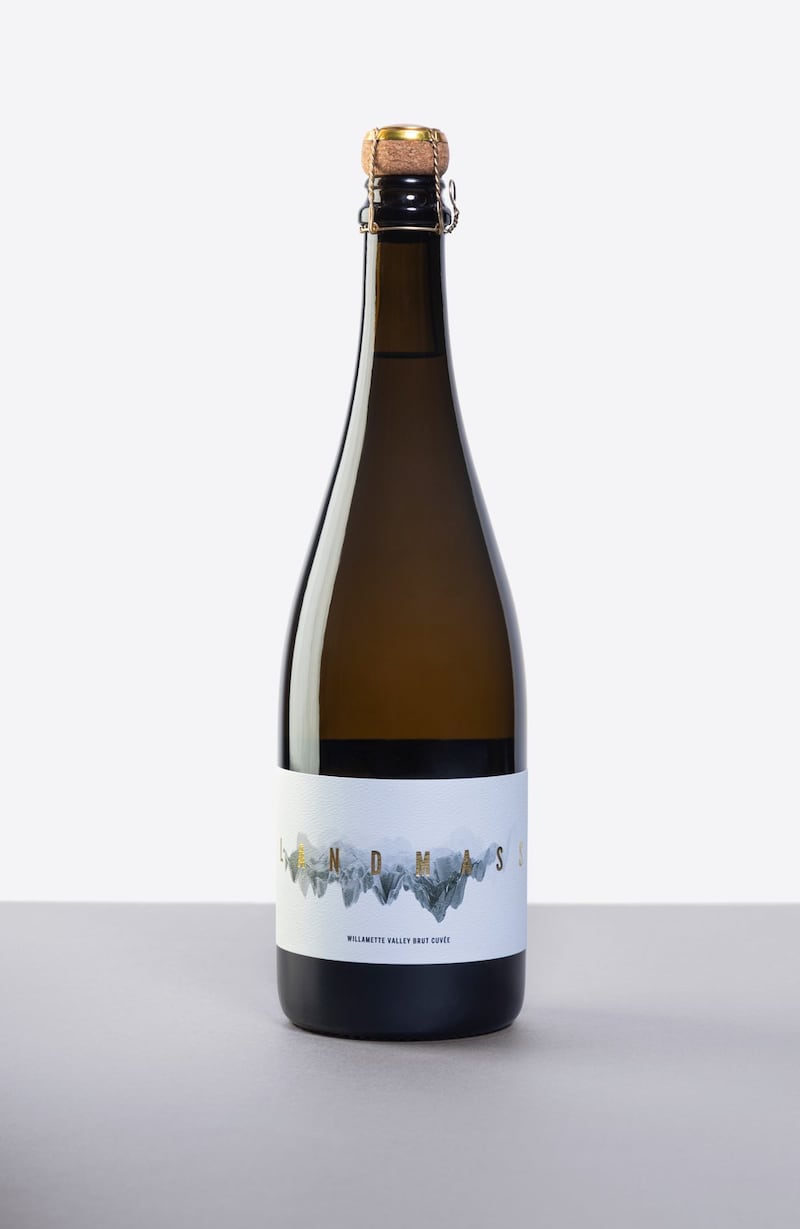My first encounter with Landmass Wines came back in 2023 at the recommendation of Mom & Pop Wine Shop co-owner Telina Rohrer. She suggested the winery’s chillable red for a shoulder season evening—the heat swells a bit in the afternoon, the cold creeps back in at night—noting the owners also lived in our Roseway neighborhood. I took the bottle home and it was delightful: bright and easy, slightly tart with the chef’s kiss of cherry notes. “They were the first ones to ever carry us!” says Landmass co-founder and maker Malia Myers, beaming a big smile at me, then her Landmass co-captain Melaney Schmidt as we sit around a couple of tables in their brand-new tasting room on Northeast Fremont Street.
Landmass, which began in 2018, has been growing steadily. You might’ve noticed it on the drink list at places like Wonderly or The 1905, seen it in shops around town, or even spotted it in the wine aisles at Whole Foods. While its main love is sparkling offerings, Landmass makes a collection of pleasant whites, the red, of course, and a pinot noir (it’s Oregon, after all). With a few higher-end exceptions, most of the wines fall within the $20 range, a very intentional choice.
“We want our wines—prices and style—to be super approachable, and we’ve held on to that for dear life,” Schmidt says. “I think our wines are starting to appear everywhere because people can reach for them on a Tuesday night.”
The through line of Landmass’ offerings is light and bright—high acidity and homed in, but comes off as mellow, simple wine. In some ways, that feels like an apt reflection of its makers, Schmidt and Myers. The two have known each other 14 years, and have been together as a couple for 12 of them. They exude a kind of infectious positivity, tumbling over each other’s sentences when recounting their history. But they’re also working their asses off. They just hired a full-time employee last year and have two helpers during harvest, but otherwise, it’s been just them running the business—picking up grape varietals across the 12 “landmasses” throughout Oregon, processing them back in Cascade Locks, and delivering bottles around Portland (they work with a distributor for statewide deliveries).
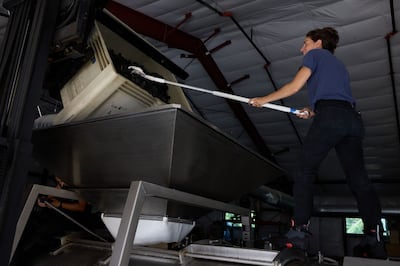
“I think what’s so great about our love for Oregon wine is, we have an outsider’s enthusiasm,” Myers says. “We are doing all of this by an enthusiastic choice—we love it here, we love the wine industry.”
The two met back in 2011 down in L.A. where both were working in different careers. Schmidt was in cocktails, burning out on bartending until 4 am. She was offered a managerial gig that required wine knowledge, but she had none. So she started taking classes at UCLA, trying to kick imposter syndrome. “My family’s super blue collar—my dad’s a mechanic, my mom’s a teacher, neither of them drank—wine was not a thing,” she says.
Schmidt went on to become a sommelier. One day, Schmidt was feeling a little off, and to cheer herself up, emailed an Oregon winery she’d been ordering from for her work—Illahe. She told the winery she loved the wine, and it responded with an invite to come visit the vineyard, if she was ever in the area. So, she and Myers got in the car and drove to Dallas, Ore., for harvest, “which was basically us taking a lot of selfies with grapes,” Schmidt laughs. “Suddenly, I was watching all these people work, this old black Lab leading the pack up to the production area—”
Myers chimes in, “Hard work, friendly people, dogs, physical work in a beautiful setting…”
“I was like, this is more my speed,” Schmidt says. “I didn’t know wine could look like this.”
The two went back to L.A., and not too long after sold their belongings and moved up to Oregon in the fall of 2016, landing back at Illahe for harvest, staying on the property. “At the end of the day, we had our dogs and the Milky Way,” Myers says. “We were like, you can do this for your life! Then we went in hard.”
Schmidt went back to school at Chemeketa Community College while Myers went for a job in wine distribution, the two eventually landing in Northeast Portland and commuting to the Willamette Valley as they kicked off Landmass. Then, in 2021, a processing facility opened up in Cascade Locks. Schmidt and Myers had been curious about the slow-growing but impressive wine scene in the Columbia Gorge, with offerings like Loop de Loop and Analemma. Sure, the area wasn’t so packed with wineries as the Willamette Valley, they couldn’t tap a neighbor to borrow a tool if something went wrong—but they jumped on it.
“The benefit of being a first-generation winemaker, we get to choose everything we do,” Myers says. “We’re choosing particular varietals from particular places, doing what we want from them. We’re able to make our high-elevation sparkling and aromatic whites from the Gorge, and these very delicate light reds from the Willamette Valley, and we get some warmer varietals from down south.”
Landmass will release two new canned wines in just a few weeks. And Myers and Schmidt will work the tasting room as often as possible, with a few helping hands to take a shift or two, as the business continues to grow.
“We’ve worn 100 hats, now [we’re] wearing 30—it’s really nice but it’s still a lot of hats,” Myers says.
“Yea, would you like a hat?” Schmidt laughs.
GO: Landmass Tasting Room, 4727 NE Fremont St., landmasswines.com. Noon–7 pm Saturday–Monday.
Sparkle Notes
A few pointers on the four types of bubbles offered by Landmass Wines.
Landmass Wines is known for a few things, but a big one is its sparkling wine, which now extends to four offerings. “The question might be, why not specialize in one of these?” Myers says, smiling. “But Melaney and I have a remarkable bandwidth. We’re so stoked to keep making these and refining them because we’re that crazy about bubbles.”
Here’s a quick breakdown of what’s what with the offerings from the “Queens of Pop”:
Forced Carbonation
This one gets CO2 injected in, like seltzer, or most beer. The drink is fresh, fruity, dry, juicy and playful. And Landmass makes this wine intentionally to be carbonated—it doesn’t put any ol’ grape in there.
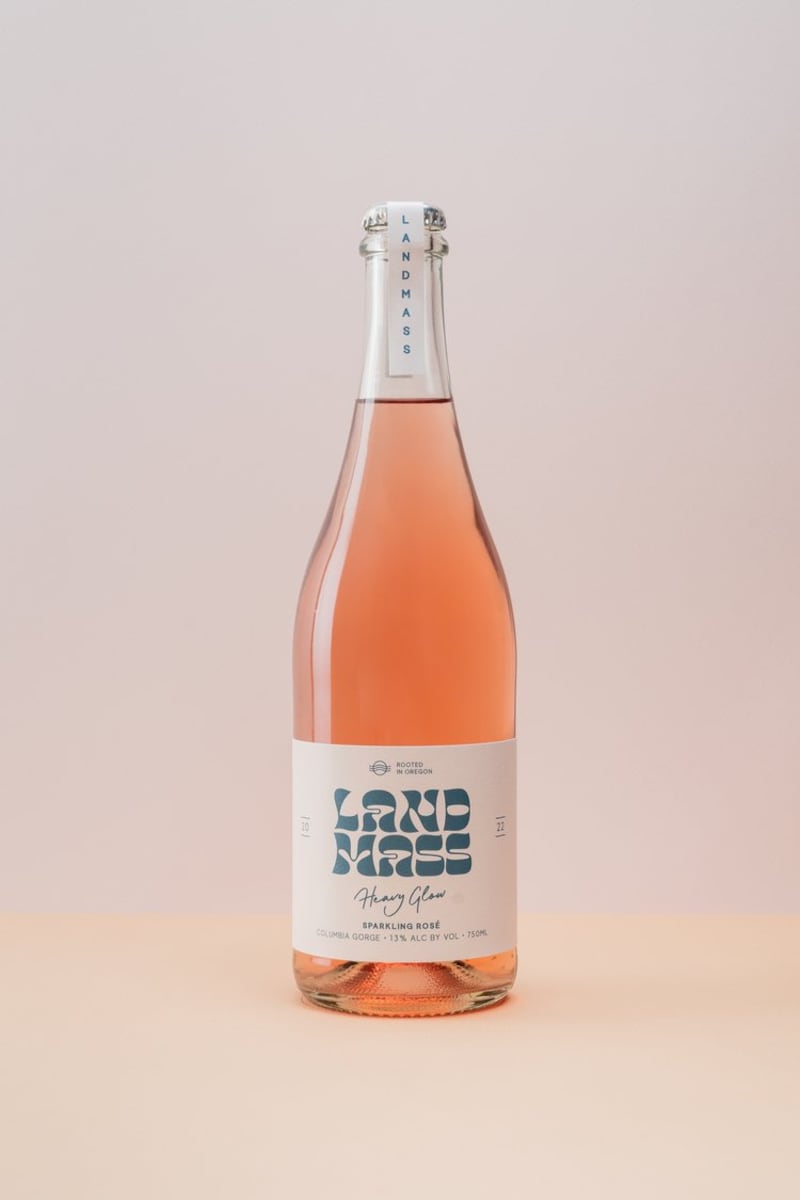
Pét-Nat
For pétillant naturel, the fermentation happens in the bottle, CO2 builds during this process, along with yeast and sediment in there, so these bottles have some cloudiness. This drink is typically low alcohol (as are most sparklings in general since they’re picked early—less-ripe fruit and less sugar means less alcohol). It’s also the only one that doesn’t require specialized equipment to make.
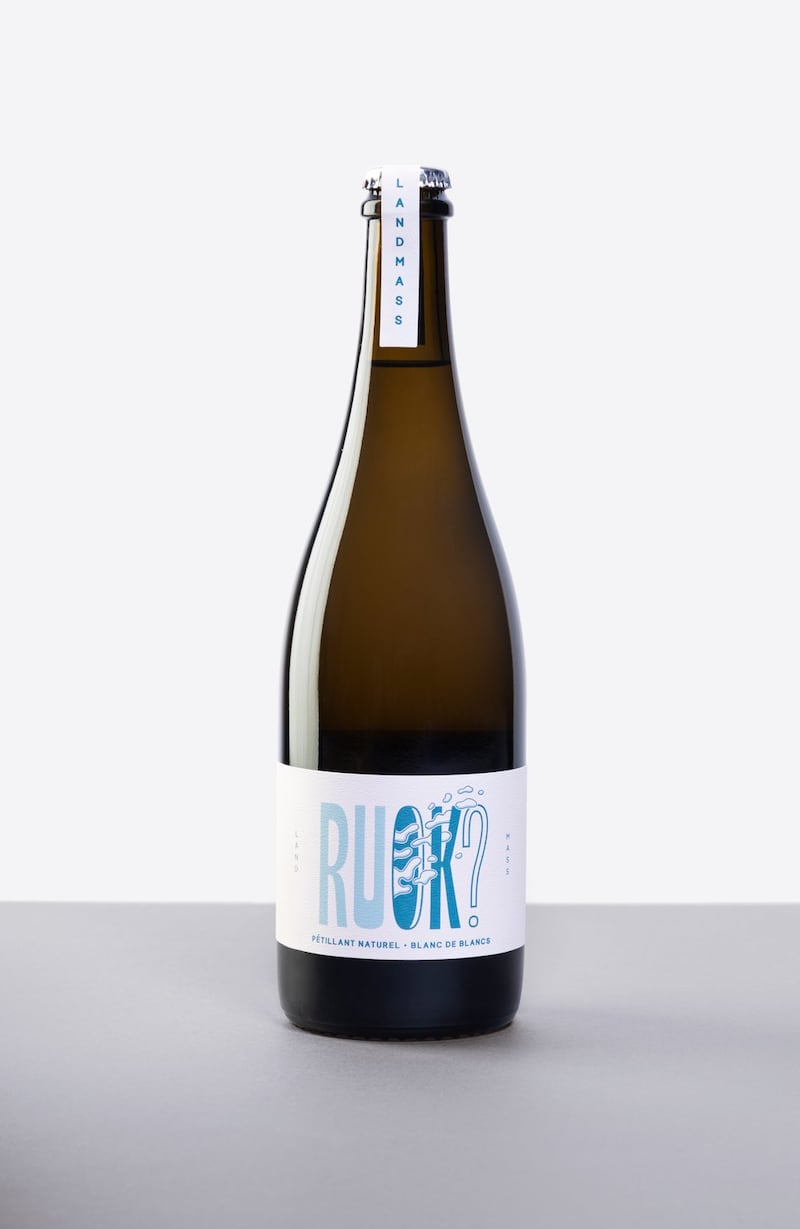
Charmat
The grapes ferment, some math happens, sugar and yeast are added, and then they ferment again in a tank—then yeast is filtered. It’s clean, clear and young, and Schmidt and Myers still claim Landmass is the only winery in Oregon making a sparkling chenin blanc.
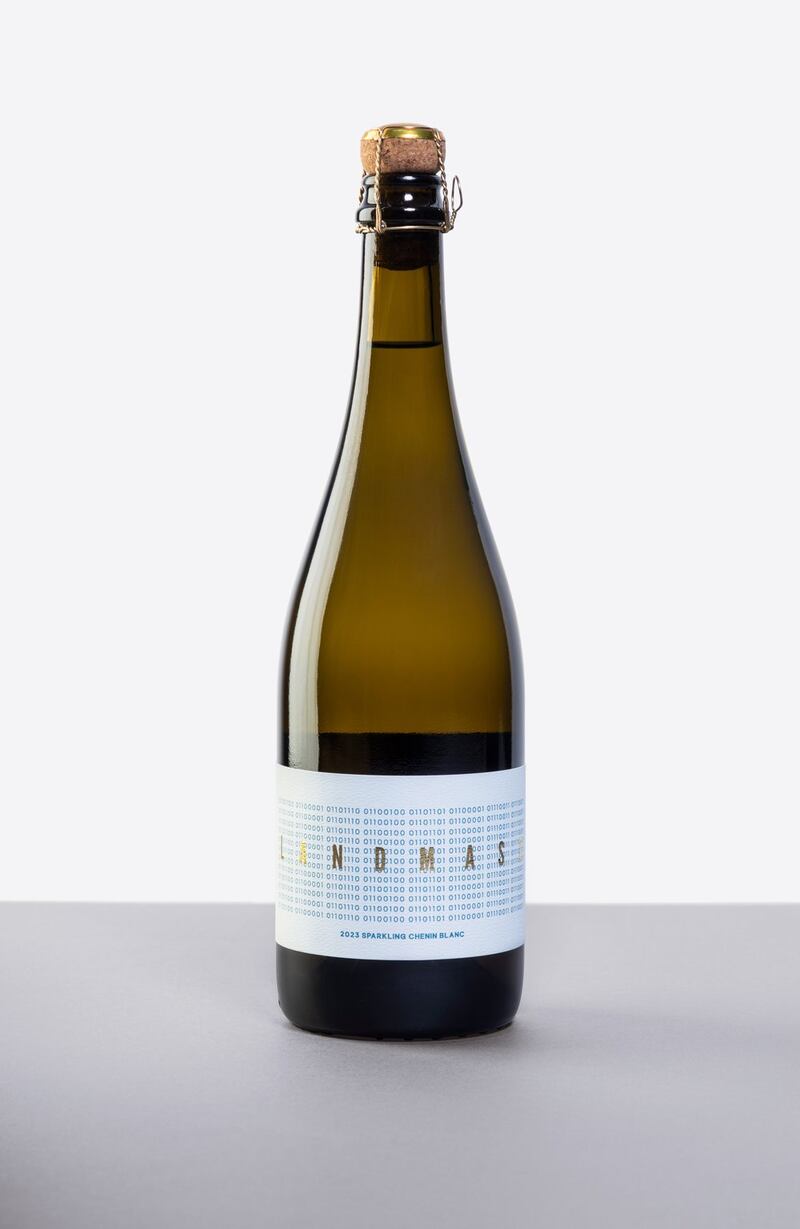
Traditional
Capture that fermentation in the bottle again! More math, add back sugar and yeast, mix it up in a tank and bottle it ASAP, capturing the bubbles in the bottle. Then, lay it sideways to let it rest with the yeast—Landmass ages a minimum of three years—capturing loads of character and depth.
